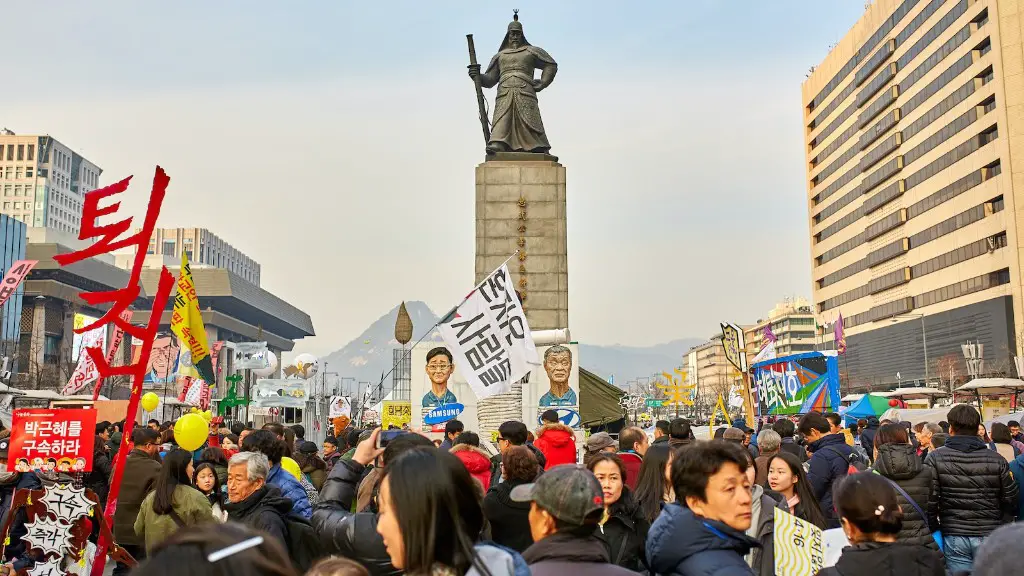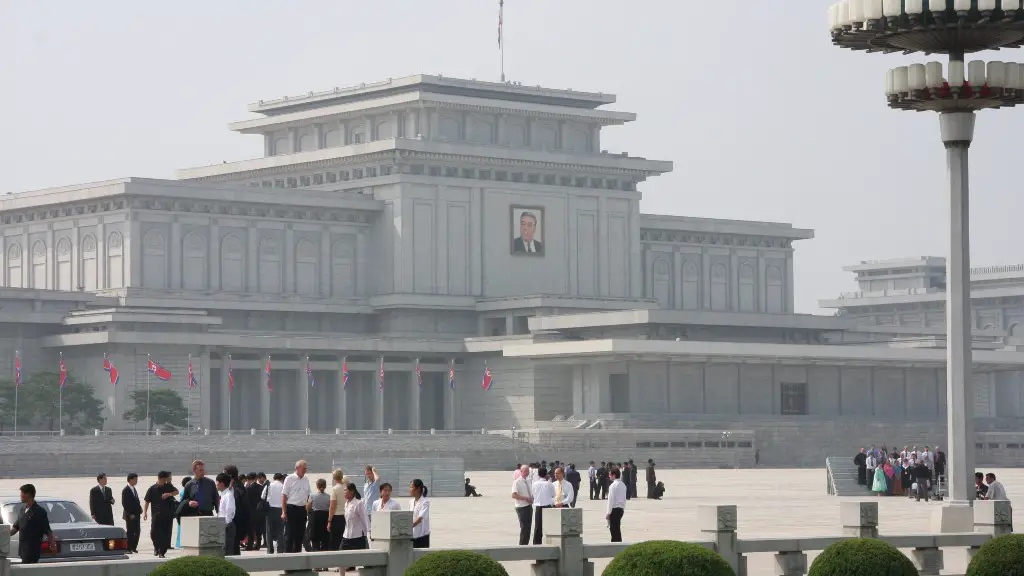History of North Korea
North Korea, officially the Democratic People’s Republic of Korea, has been led by the Kim family since its founding in 1948. The current leader, Kim Jong-un, has been in power since 2011, succeeding his father Kim Jong Il. North Korea is one of the most isolated and repressive regimes in the world. It has survived despite the collapse of its economic foundation, the end of its staunch allies, the Soviet Union and China, and its isolated status. This has left many people wondering why North Korea has not collapsed.
Economy
In order to understand why North Korea has not collapsed, one must look at the country’s economy. North Korea is one of the poorest countries in the world and its economy has been in decline for years. Despite this, the regime has managed to maintain its grip on power by relying on foreign aid and hard currency from China and other countries. This has enabled North Korea to keep its economy afloat and prevent the country from sinking into further poverty.
Military Presence
Another factor that has enabled North Korea to resist collapse is its formidable military presence. North Korea has the fourth-largest standing army in the world and a well-equipped military-industrial complex. The country also has a nuclear weapons program, which has been an effective deterrent against international aggression and collapse.
Ideology and Propaganda
The regime in North Korea is firmly committed to its ideological platform of “Juche,” which is a form of national self-control and independence. This ideology has been used as a tool of legitimation and propaganda by the regime, allowing them to retain tight control over the population. Through this propaganda, they have managed to create a sense of loyalty and patriotism among the populace, which has enabled the regime to survive despite international condemnation.
Cultural Preservation
North Korea has managed to maintain its cultural identity and historical memory despite the outside world’s condemnation. This is due to the country’s commitment to preserving its traditional culture and language. In addition, North Korea has an incredibly low level of immigration, which has helped the country to preserve its identity and culture.
Foreign Relations
North Korea has managed to maintain its isolated status by shunning most international relations with the outside world. The country maintains especially close ties with China and Russia, two countries that it believes will not pressure it to change its policies. This isolation has helped North Korea to maintain its sovereignty and resist collapse.
Complicity of the North Korean People
Finally, North Korea has managed to survive due in part to the complicity of the North Korean people. Despite the deplorable conditions in the country, the majority of North Koreans view their government and society positively. This is due to generations of indoctrinating propaganda and a sense of national pride.
Government Control
It is also important to consider the role that the North Korean government has played in keeping the country afloat. The regime has managed to maintain tight control over all aspects of public life, from the economy to the media. This has enabled the regime to prevent any serious dissident movements and keep control of the population.
Containment Policies
Finally, it is important to note that North Korea has benefited from the international containment policies that have been put in place to prevent the regime from developing nuclear weapons. This has prevented the regime from engaging in destabilizing behavior, which would have likely led to its collapse.
Conclusion
North Korea has managed to survive against all odds due to a myriad of factors. These include its oppressive regime, the country’s economy and military presence, its cultural preservation and propaganda, its foreign relations and its complicity of the North Korean people. Ultimately, it is clear that a combination of these factors has enabled North Korea to survive and resist collapse.


